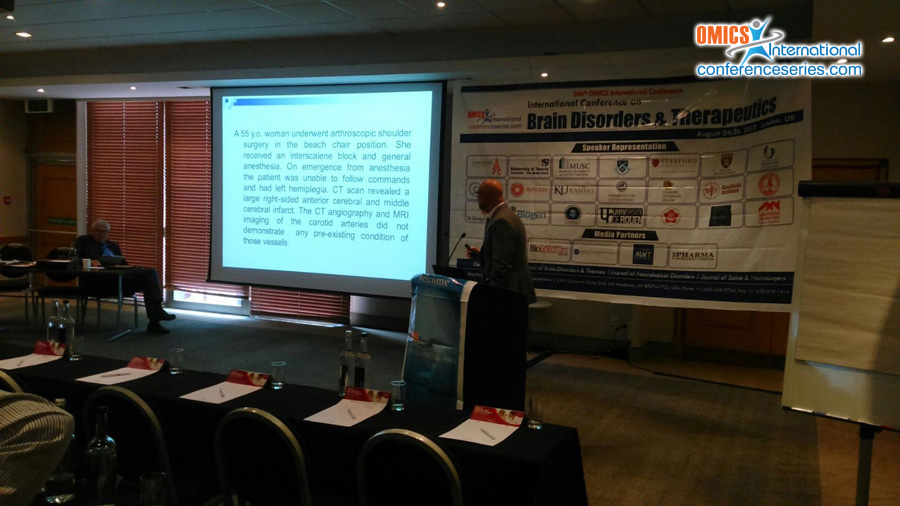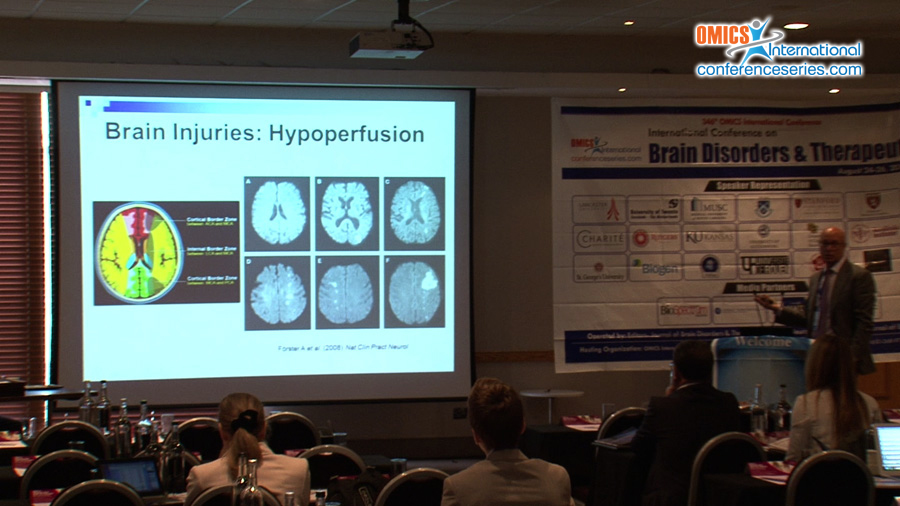
Biography
Biography: Alex Bekker
Abstract
Perioperative stroke is defined as an episode of focal or global loss of cerebral function with symptoms lasting more than 24 hours. Perioperative strokes result in increased duration of hospital stay, rates of disability, discharge to long-term care facilities and death after surgery. General surgical procedures are associated with a 0.08-0.7% risk of stroke. The incidence is higher for coronary artery bypass grafting surgery (1.4-3.8%) and valve replacement surgery (up to 9.7%). Potential stroke etiology includes hypoperfusion (global and focal), thromboembolism and hemorrhage. The preoperative patient related risk factors for perioperative stroke are advanced age, previous cerebrovascular diseases, peripheral vascular disease, chronic obstructive pulmonary disease (COPD), atrial fibrillation, hypertension, cardiac valvular disease, diabetes mellitus, HTN, atherosclerosis and renal disease. General anesthesia, dehydration, bed rest, stasis in the postoperative period and perioperative withholding of antiplatelet or anticoagulation agents can aggravate surgery-induced hypercoagulability and increase the risk of perioperative thrombogenic events. Elective surgery should be delayed for at least 1 month after a documented ischemic stroke. Another consideration in the preoperative period is patients who require chronic anticoagulation. Bridging oral anticoagulant therapy (warfarin) with heparin or low molecular weight heparin should be considered for the majority of patients who require temporary interruption of warfarin therapy. Several studies suggested that intraoperative hypotension induced by anesthesia does not considerably increase risk for perioperative stroke in patients with carotid disease. Most authors recommend that intraoperative blood pressure should be maintained within 20% of preoperative level.Postoperative risk factors for a stroke include heart failure, myocardial infarction, arrhythmias (atrial fibrillation), dehydration (blood loss) and hyperglycemia. Anticoagulation in the immediate postoperative period especially in patients with AF may be useful.Implementation of the therapeutic measures that reduce the incidence of this complication is an appealing concept because failure of neuroprotective agents in acute stroke may be due to delay in presentation after stroke has occurred. Preoperative administration of statins, ASA, a continuation of anticoagulation therapy (when indicated) as well as appropriate timing of surgery do appear to reduce the incidence of stroke after CABG and vascular surgery and may show similar results in the general surgery population as well. Anesthesiologists can implement several therapeutic and procedural measures to minimize morbidity associated with a perioperative stroke.
Speaker Presentations
Speaker PDFs
Speaker PPTs Click Here





